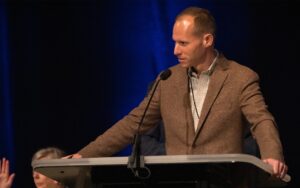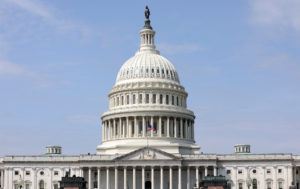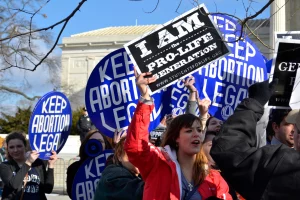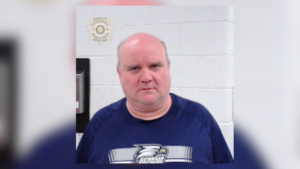FCC bans some wireless microphones
WASHINGTON (BP)--After his church invested $250,000 in wireless technology, Chris Hinkle of Prestonwood Baptist Church in Dallas is concerned by the federal government's Aug. 21 vote ...
FCC may impede wireless microphones
WASHINGTON (BP)--The use of wireless microphones in churches could be among the technologies dramatically changed if the Federal Communications Commission votes to place new unlicensed devices in unused bandwidth called "white space."
USCIRF urges action on Kazakhstan, Burma
WASHINGTON (BP)--The U.S. Commission on International Religious Freedom (USCIRF) has urged the federal government to promote democracy, human rights and religious freedom for people in Kazakhstan and Burma. Amendments approved in 2005 to Kazakhstan laws require religious organizations to register under the regional and national Ministry of Justice offices. USCIRF is concerned a recent draft law that is advancing in the Kazakh parliament will restrict religious communities. Burmese citizens continue to suffer more than a year after their repressive military junta used violence to crack down on peaceful protests over the government's drastic increase in fuel prices. Thousands of Buddhist monks joined those demonstrations. The military put an end to the protests in late September 2007 by killing, beating and jailing protesters, including monks. "Burma's military junta has presided over a human rights and humanitarian disaster that is deepening, not receding," USCIRF Chair Felice Gaer said in a written release Sept. 30. "The military's many human rights abuses are a direct challenge to every Burmese, as well as to international human rights law and regional security." Gaer recommended the U.S. government begin to assist the Burmese people by creating an "interagency task force" in the National Security Council and by appointing a U.S. special envoy to Burma. USCIRF urged the U.S. government to work with both European and Asian allies to tighten sanctions and intensify diplomatic engagement with the Burmese government. The commission also recommended the United States urge the United Nations to establish requirements the Burmese military must meet in order to end the country's isolation from the rest of the world. The international community also must "coordinate its efforts to free all prisoners, distribute disaster relief, begin the process of democratic transition, end the abuses targeting ethnic and religious minorities, and convince Burma's neighbors to stop propping up the junta," Gaer added. Overall, Gaer said the commission is mostly concerned with the number of political and religious prisoners that has doubled in Burma over the past several years. According to USCIRF, there are approximately 2,000 "prisoners of conscience" behind bars in Burma. "The release of a few does nothing for the thousands who remain in prison for their peaceful activities to promote human rights and political freedoms," Gaer said. "Their release must be the most urgent demand of the U.S. government and its allies." The U.S. State Department has designated Burma as one of eight "countries of particular concern," a classification reserved for the world's most severe violators of religious freedom.
Ending Sudan violence: USCIRF hearing
WASHINGTON (BP)--What Richard Williamson saw on the streets of a Sudanese village made even the ethnic cleansing in Bosnia and Kosovo of the early 1990s seem tame. He saw churches burned to the ground, marketplaces in ruins and clothes scattered in every direction.
U.S.-Muslim engagement seen as key to security, prosperity
WASHINGTON (BP)--Deep misunderstandings between the United States and Muslim communities around the world are causing serious problems and solving them will require constructing "bridges of understanding," says the president of the Southern Baptist Convention's Ethics & Religious Liberty Commission.
"Polls show there is a huge lack of understanding of Americans in the Muslim world. We need to broaden and deepen the understanding on both sides," Richard Land said. "The U.S.-Muslim Engagement Project will galvanize every aspect of American society to engage the Muslim society."
[QUOTE@left@150="The leadership group believes that we must elevate diplomacy for conflict resolution ... Military force may be necessary but is not sufficient alone to defeat extremists in Muslim countries such as Iraq, Afghanistan and Pakistan or prevent attacks elsewhere."
-- Richard Land] The U.S.-Muslim Engagement Project is a broad bipartisan coalition that recently completed 18 months of extensive research into the challenge of reversing extremism, increasing international security and improving relations with the Muslim community. The project's 33-member leadership group included, among others, the ERLC's Land, former U.S. Secretary of State Madeleine Albright, former Texas congressman Steve Bartlett, and former Minnesota congressman Vin Webber.
The group, which had 11 Muslim-American members and was supported in its work by Search for Common Ground and the Consensus Building Institute, held a briefing Sept. 24 on its report -- entitled "Changing Course: A New Direction for U.S. Relations with the Muslim World" -- at the Rayburn House Office Building and a press conference at the National Press Club.
"This initiative is a serious, comprehensive, bipartisan effort that seeks to address a critical problem: The world Muslim community misunderstands Americans and Americans misunderstand them," Land said in a written endorsement. "This initiative lays out a detailed and comprehensive plan to vastly decrease that misunderstanding through a multi-faceted approach that will build constructive bridges of mutual understanding between Americans and Muslim world."
The group's plan calls for significant shifts in American foreign policy to create a safer U.S. and a better world and suggests a "new blueprint" on how to reconstruct America's relationship with Muslims around the world, said Stephen Heintz, president of the Rockefeller Brothers Fund. Project leadership has called for the next president of the U.S. to recognize the importance of improving U.S.-Muslim relations in his inaugural speech.
"We hope this work will be taken seriously in the presidential campaign," Heintz said. "We look forward to working with the next administration, because this is going to take a significant presidential leadership and ongoing leadership from the Congress of the U.S."
ERLC urges stronger tobacco regulation
WASHINGTON (BP)--Stressing concern for the health of American families, the head of the Southern Baptist Convention's Ethics & Religious Liberty Commission Sept. 8 appealed to the U.S. Senate to pass key tobacco legislation.












